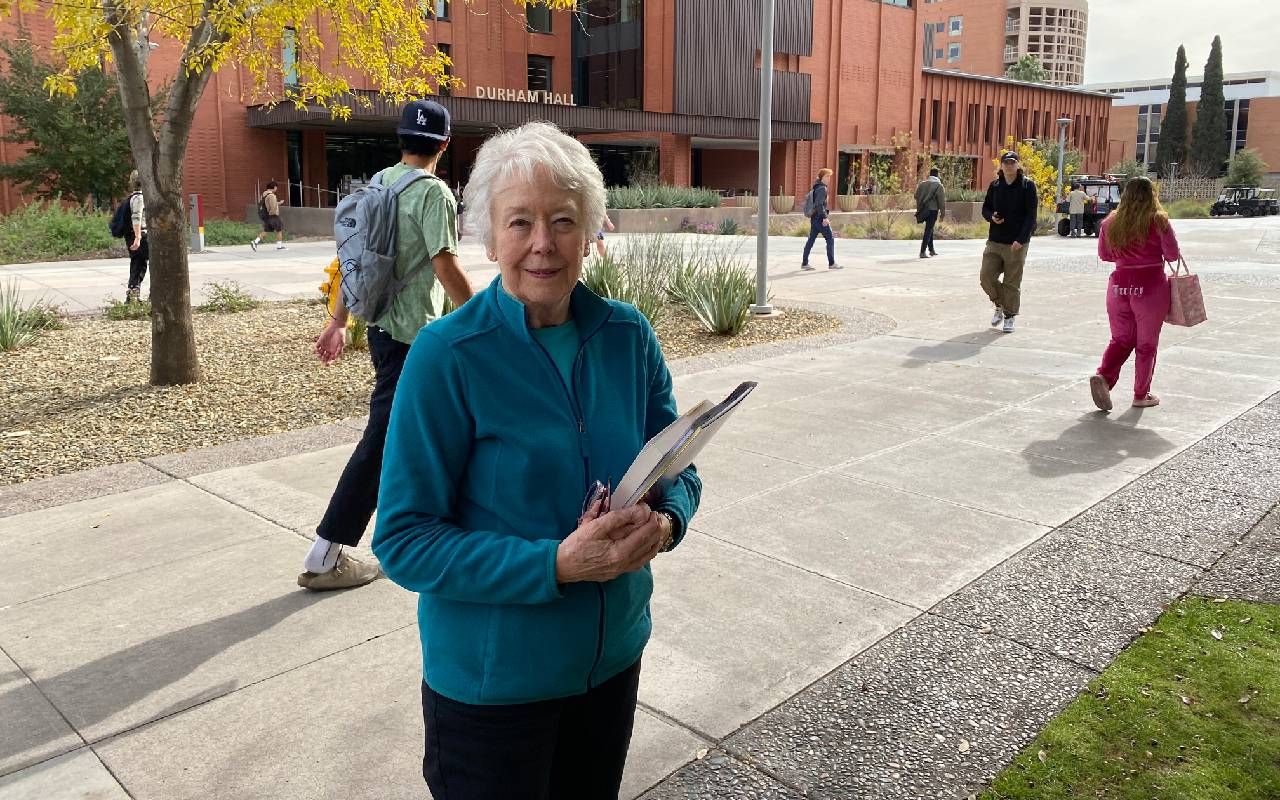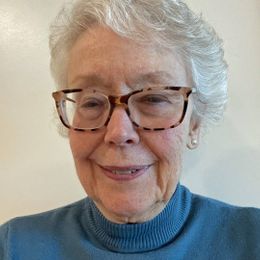Extra Credit: Returning to University at Age 77
Living in a retirement community closely affiliated with a research institution gives me an intergenerational opportunity to resume my formal education
When I attended my 50th college reunion, I was so impressed by the new buildings, the new programs and the energy on the central Pennsylvania campus that I found myself wishing I were 17 again and could come back as a freshman and start over.

Of course, I wanted to start over with all the knowledge and experience of the past 50 years. And that was not going to happen . . . or so I thought.
After a 30-year career in medical research at an upstate New York hospital, I had already retired to Arizona. My husband and I lived in one of the many 55+ active adult communities that are scattered around the Southwest. The beautiful weather allowed us to be active all year, without fear of ice and snow.
I wanted to start over with all the knowledge and experience of the past 50 years. And that was not going to happen . . . or so I thought.
Retiree Heaven in Arizona
We played tennis, volunteered in community programs and were members of a lifelong learning program — both teaching classes and taking classes taught by other retirees. We enjoyed our friends and our community. We modified our house to be accessible, in case of health limitations, and planned to live there forever.
However, a combination of personal health issues and the COVID pandemic led us to consider moving to a more comprehensive health care setting. After looking at several life care communities, we chose a development called Mirabella that is on the campus of Arizona State University (ASU) in Tempe.
The Attractions of College
Our choice was influenced by the on-campus location and the opportunity to actively engage with a college campus environment since lifelong learning opportunities were important to us. And it was only about 15 miles from our previous community, allowing us to continue seeing friends and attending events there.
Mirabella's "University Based Retirement Community" model — like similar setups at Stanford, Dartmouth, Duke and about a hundred other colleges and universities — offers many perks for those of us who are retired. The benefit of this type of senior living community that I have particularly enjoyed is the affiliation with ASU. As a Mirabella resident I am considered a student at ASU. I now have my chance to return to college.
Does It Fit Your Budget?
The opportunity does not come cheap. Living costs at Mirabella exceed the tuition ASU charges out-of-state undergraduates (whose tuition, room, and board can exceed $47,000 per year.) Fees for Mirabella range from about $58,000 per year for the least-expensive apartment to about $94,000 for a penthouse.
Since Mirabella is a "life plan" community, residents also pay a one-time entrance fee (ranging from about $400,000 to over $1 million with 80% being refundable).
No Pressure, Just Pleasure
In addition to access to ASU programs, Mirabella's fees include food, utilities, housekeeping, maintenance, local transportation and access to health care (including assisted living, memory care and skilled nursing).
A fellow classmate looked at what I had written and declared "Cursive?" I guess they don't teach that anymore.
I am enjoying taking courses with no pressure to get a good grade or even get a grade at all. It's not at my former alma mater, as I had once imagined, but a new campus with all the energy and excitement that a university inspires.
In my first year I took classes in media studies, cultural geography and government and politics. I am now taking a course on women in film and, for the most part, seek studies in areas that I know little about. In fact, many classes are in fields of study that did not even exist 50 years ago.
Welcoming Classrooms
I find the faculty remarkably supportive of the "intergenerational" perspective that older adults bring to the classes. I have been encouraged to participate in discussions and student projects.
One memorable experience was in a small student group where I volunteered to record our collective response to the question put to us. One of my fellow classmates looked at what I had written and declared "Cursive?" I guess they don't teach that anymore.
Being on a university campus offers many exciting student-led events from musical performances to cultural presentations to sports. The students are delighted to have an audience for their programs and we retirees are delighted to enjoy their efforts, sometimes even joining in.
Intergenerational Engagement

I was especially pleased to be invited by some of the students to be part of a student-led program on Women in STEM. This initiative brought together undergraduate students and women who have or had careers in STEM fields (science, technology, engineering and math).
The set-up was a round table discussion on what the workplace is like for women in these traditionally male fields. To my surprise, many male as well as female students participated. Questions ranged from how I became interested in science to what they should expect when they join the workforce.
There were lively discussions and it felt good to be able to share some of my life experiences with them in ways that I hope will help them as they navigate their career choices.
The Joy of Lifelong Learning
So many other fellow residents were attracted to this new type of retirement community by the same reason I had — to be part of a learning community. Discussions at meals, in hallways or in the fitness center often center on what courses people are taking and what new programs are on campus. We all freely share our new learning experiences. I often feel that I live in a 20-story dorm that houses the oldest students on campus.
What a joy it is to realize my dream of "going back to school" and being able to do it with a group of peers who also delight in being lifelong learners.


